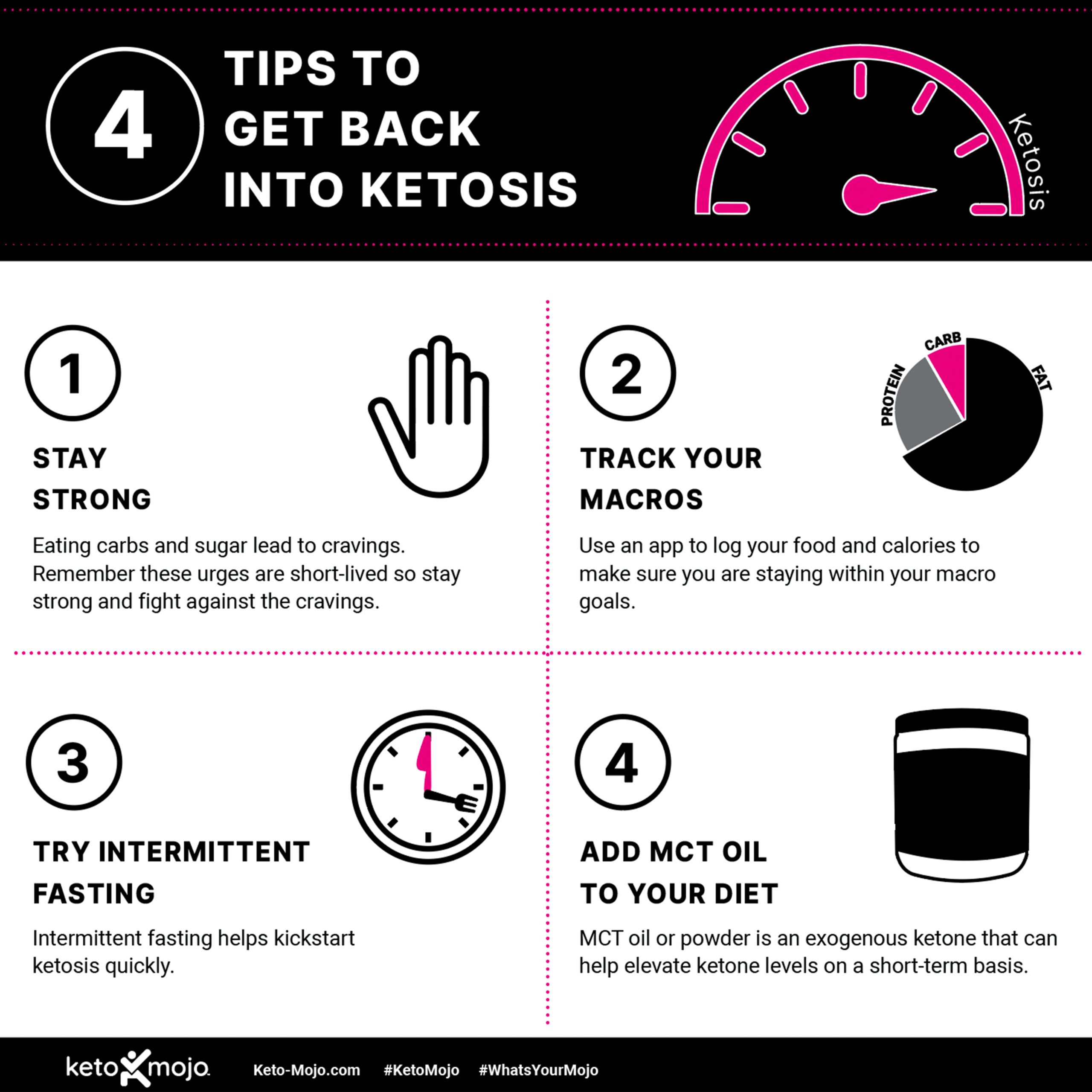
A quick answer to questions about how to remain in Ketosis.
Q: What is Ketosis?
A: Ketosis is a metabolic state in which your body burns fat for energy instead of carbohydrates. It occurs when your body is deprived of carbohydrates and is forced to use stored fat for fuel.
Q: How can I get into Ketosis?
A: You can get into Ketosis by drastically decreasing your carbohydrate intake. On a keto diet, roughly 5-10% of your daily calories will come from carbs. This comes out to about 30-50 grams of carbs per day. The majority of these carbs will come from keto-friendly foods, including leafy green vegetables, low-sugar fruits, and fat sources such as MCT oil, olive oil, coconut oil, avocados, avocado oil, nuts, and seeds.
Q: How can I maintain a state of Ketosis?
A: To maintain a state of Ketosis, it is important to stay within your daily carbohydrate limit and consume friendly carbs, such as green leafy vegetables, cruciferous vegetables, and salad vegetables. You must also consume moderate protein and high-fat sources.
Q: What should I avoid to stay in Ketosis?
A: To stay in Ketosis, you should avoid foods with high-carbohydrate content, such as bread, grains like cereals, rice, granola, pasta, sugary desserts, jams, syrups, and sweet drinks. Avoid vegetables with plenty of starch, like potatoes, corn, and fruits with high sugar content.
Q: What are some tips to make staying in Ketosis easier?
A: To make staying in Ketosis easier, you should avoid cheating on your diet. Make sure to plan meals, track your daily carb intake, and eat healthy, keto-friendly snacks. Staying hydrated and getting sufficient sleep can also help you remain in Ketosis. Additionally, taking nutritional supplements for electrolyte balance can be beneficial.
Q: What should I do if I experience negative side effects while transitioning into Ketosis?
A: If you experience negative side effects while transitioning into Ketosis, known as the Ketosis Flu, don’t worry; these symptoms are normal and should go away in a week. However, if you experience severe symptoms, you should visit a doctor.
Remember, each individual’s experience with the keto diet varies. Maintaining a healthy lifestyle and consult a doctor or nutritionist if necessary is essential. Read @ Perfect Keto
In conclusion, staying in ketosis can be challenging at times, but it is achievable with commitment and dedication. Choosing the right foods, monitoring your macros, staying hydrated, and incorporating regular physical activity are all key elements to help you maintain ketosis.
Additionally, educating yourself on the pitfalls and being prepared with healthy snacks and meal options can help you stay on track.
You can reap the numerous health benefits of a ketogenic lifestyle with persistence and patience. Always listen to your body and consult a medical professional before starting any new diet or exercise regimen.
